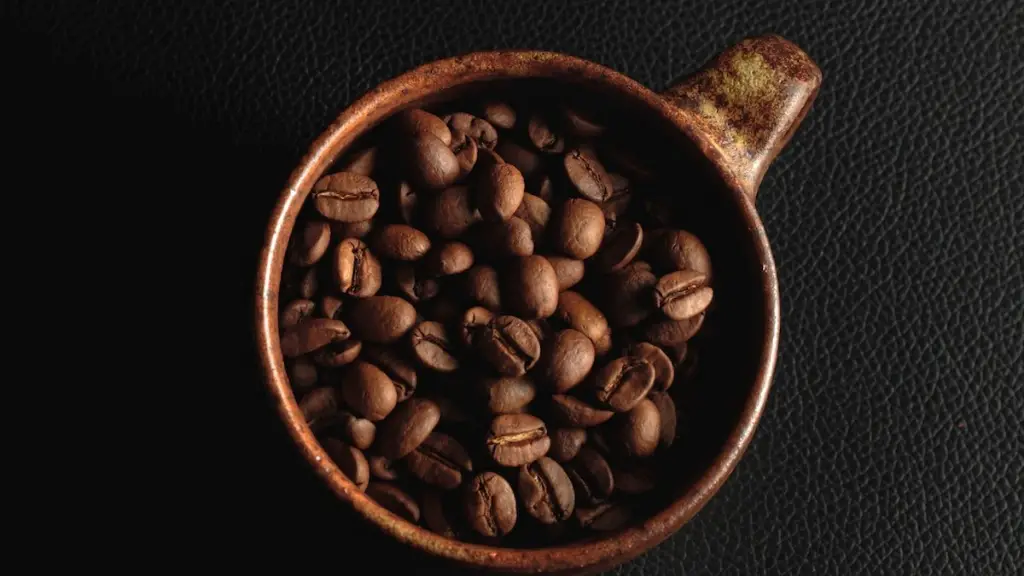The Effects of Drinking Coffee on an Empty Stomach
Coffee is one of the most popular drinks in the world, with a long history of both health benefits and drawbacks. It is widely known to help wake people up in the morning, activate the mind, and boost physical performance. But what happens when you have your coffee on an empty stomach?
Studies have found that drinking coffee immediately after eating can cause stomach upset, irritability and nausea. The caffeine in coffee can also increase feelings of low blood sugar, leading to hunger pangs and cravings. When combined with a breakfast of coffee and toast, the caffeine will normally be absorbed by the food, resulting in energizing but sustainable effects.
On the other hand, when an individual has coffee on an empty stomach it may be harder for their system to handle – particularly for those with weaker or smaller stomach volumes. The coffee may pass through too quickly for the body to properly absorb and process it, meaning that too much of the energy-fueling caffeine is lost in the rush.
Although it is not recommended for anyone to have coffee on an empty stomach, it is those of us who are ‘early birds’ – waking up and having coffee first thing – that need be aware of the potential impacts. Research shows that caffeine takes up to 45 minutes to have its full effect, peaking at 60 minutes. So if you are going to have your coffee first thing in the morning, it is advisable to wait 30 minutes more before having breakfast.
Another potential problem resulting from having coffee on an empty stomach is that it can cause an increase in cortisol production. This is known as a ‘fight-or-flight’ response, where the body prepares for danger or physical exertion. Cortisol gives us an energy kick and can be beneficial in moderation, but long-term increased levels are associated with health issues such as sleep disruption, a weakened immune system, while too much can lead to elevated risks of heart disease.
The Health Benefits of Coffee
Despite the potential drawbacks of drinking coffee on an empty stomach, coffee itself has several scientifically proven health benefits. Most obviously, it can offer a number of psychological and physical benefits when taken in moderation. It is known to increase cognitive performance, reduce feelings of fatigue and improve exercise performance, making it a useful weapon in the morning.
Coffee is also known to improve alertness and reaction time, allowing us to focus better and absorb more information, tasks which are particularly essential for those who study or work long hours. In addition, some research has noted a link between drinking coffee and a decrease in the risk of some forms of cancer, such as prostate and liver cancer. As well as protecting against complications from some forms of liver disease.
The Risks of Overindulging in Caffeine
The reality is that, like all good things, having too much of it can lead to numerous adverse effects. Drinking too much coffee on an empty stomach can result in symptoms of caffeine intoxication, such as restlessness, rapid heart rate, tremor and nausea. What’s more, heavy coffee drinkers may be putting themselves at higher risk of alternate substances abuse, as caffeine activates the body’s ‘fight-or-flight’ response.
On top of this, some people without access to regular, healthy meals may rely on coffee as a form of regular sustenance, which can be a health risk. Generally speaking, it’s recommended that people cap their intake of caffeinated drinks at four cups per day, as drinking any more than this could start to build a tolerance to the caffeine, leading to further problems.
Moderation is Key
Ultimately, the answer isn’t to cut out coffee altogether. In micro-doses, it can boost energy levels, spur creativity and improve physical performance. The key is to enjoy it in moderation when your stomach carries a light load, with as many natural ingredients as possible. A balanced diet and a healthy lifestyle will help prevent any symptoms developing, as well as increase the positive benefits that come with drinking coffee.
The Impact of Coffee on Performance
Coffee has long been believed to improve performance for athletes and those who exercise. Studies conducted reviewing the effects of coffee on performance have found evidence that coffee both can improve endurance, sprint velocity and peak power performance, as well as help burn fat at a faster rate. That said, consuming too much caffeine or having coffee on an empty stomach can negatively affect performance as increased cortisol can cause muscle fatigue.
The effects of caffeine are dose dependent, so it is important for athletes to be aware of how much performance-enhancing caffeine is enough, and when it might become too much. Studies have suggested that those who consume between 100-400mg of caffeine prior to exercise experience an improved level of physical activity.
Considerations Before Having Coffee on an Empty Stomach
Deciding whether or not to have coffee on an empty stomach depends on a few different factors. Consider if you have a problem with low blood sugar and any gastrointestinal complications, and if you are consuming any other substances that might interact with the caffeine. Additionally, individuals with a high tolerance to caffeine, or those of us looking to get the maximum performance from our coffee, should beware of having their coffee on an empty stomach. All in all, it’s best to exercise some caution when having coffee on an empty stomach.



